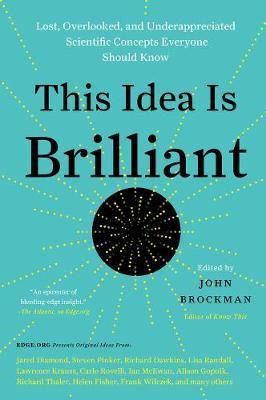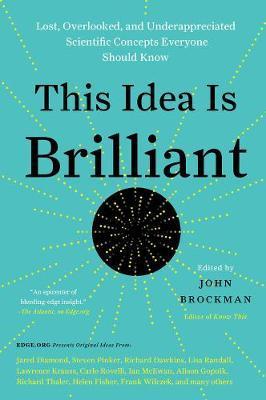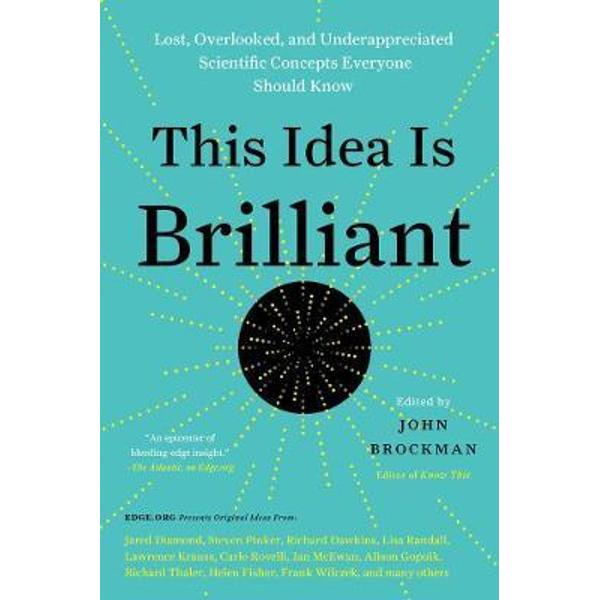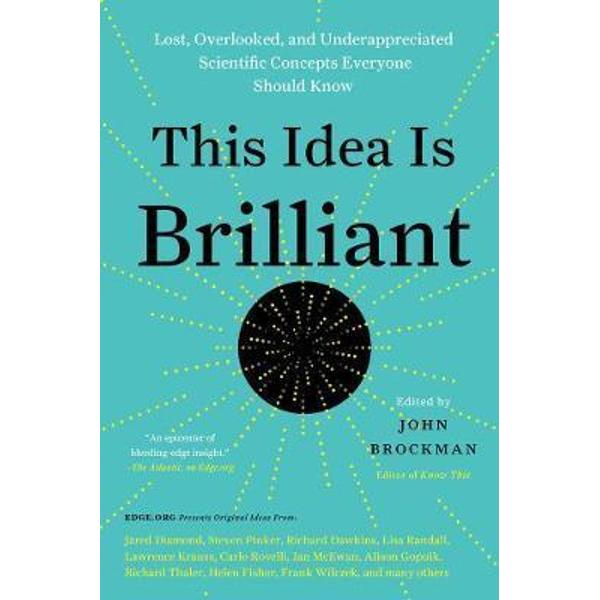This Idea Is Brilliant
This Idea Is Brilliant
As science informs public policy, decision making, and so many aspects of our everyday lives, a scientifically literate society is crucial. In that spirit, Edge.org publisher John Brockman asked 206 the world's best minds the 2017 Edge Question: What scientific term or concept ought to be more widely known?
Contributors include: author of The God Delusion RICHARD DAWKINS on using animals' "Genetic Book of the Dead" to reconstruct ecological history; theoretical physicist and author of A Universe from Nothing Lawrence Krauss on "uncertainty" and resisting our temptation to assign meaning to random events; MacArthur Fellow REBECCA NEWBERGER GOLDSTEIN on "scientific realism," the idea that scientific theories explain phenomena beyond what we can see and touch; behavioral economist RICHARD THALER on the "premortem," which can help root out potential hazards before making a major business decision; Pulitzer Prize-winning author of Guns, Germs, and Steel JARED DIAMOND on a basic precept too often missing from scientific discourse: "common sense;" author of Seven Brief Lessons on Physics CARLO ROVELLI on "relative information," which governs the physical world around us; author of The Shallows NICHOLAS CARR on "mysterianism," the idea that humans' mastery and understanding of the world around us is illusory; theoretical cosmologist JANNA LEVIN on the "principle of least action," which allows us to express many of the most complex ideas in a single sentence; cognitive scientist and author of The Language Instinct STEVEN PINKER on "The Second Law of Thermodynamics;" author of Emotional Intelligence DANIEL GOLEMAN on "empathic concern," a scientific basis for compassion; theoretical physicist and Time 100 influencer LISA RANDALL on "effective theories," which reflect what we observe in the world around us; founding executive editor of Wired KEVIN KELLY on "premature optimization," or why success so often begets failure; biogerontologist AUBREY D
117.74Lei
117.74Lei
Livrare in 2-4 saptamani
Descrierea produsului
As science informs public policy, decision making, and so many aspects of our everyday lives, a scientifically literate society is crucial. In that spirit, Edge.org publisher John Brockman asked 206 the world's best minds the 2017 Edge Question: What scientific term or concept ought to be more widely known?
Contributors include: author of The God Delusion RICHARD DAWKINS on using animals' "Genetic Book of the Dead" to reconstruct ecological history; theoretical physicist and author of A Universe from Nothing Lawrence Krauss on "uncertainty" and resisting our temptation to assign meaning to random events; MacArthur Fellow REBECCA NEWBERGER GOLDSTEIN on "scientific realism," the idea that scientific theories explain phenomena beyond what we can see and touch; behavioral economist RICHARD THALER on the "premortem," which can help root out potential hazards before making a major business decision; Pulitzer Prize-winning author of Guns, Germs, and Steel JARED DIAMOND on a basic precept too often missing from scientific discourse: "common sense;" author of Seven Brief Lessons on Physics CARLO ROVELLI on "relative information," which governs the physical world around us; author of The Shallows NICHOLAS CARR on "mysterianism," the idea that humans' mastery and understanding of the world around us is illusory; theoretical cosmologist JANNA LEVIN on the "principle of least action," which allows us to express many of the most complex ideas in a single sentence; cognitive scientist and author of The Language Instinct STEVEN PINKER on "The Second Law of Thermodynamics;" author of Emotional Intelligence DANIEL GOLEMAN on "empathic concern," a scientific basis for compassion; theoretical physicist and Time 100 influencer LISA RANDALL on "effective theories," which reflect what we observe in the world around us; founding executive editor of Wired KEVIN KELLY on "premature optimization," or why success so often begets failure; biogerontologist AUBREY D
Detaliile produsului














